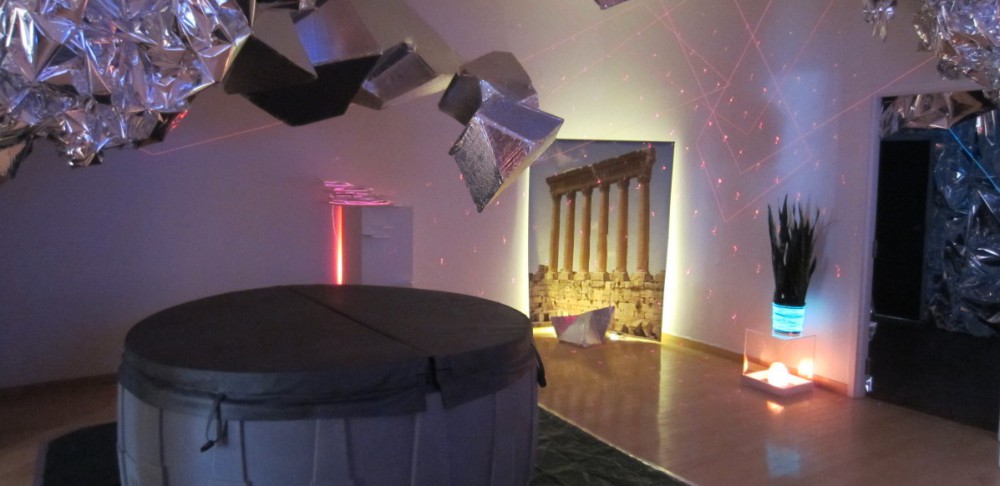What can I say about There Will Come Soft Rains? It’s quite interesting. My problem with it, however, is that it is only a four page text. That doesn’t leave much room for the expansion of ideas, but what it presented I did like. It reminded me of The Machine Stops, in both texts it is a machine that provide for the people of its society. What I loved about the machine in this text is that it showed us what it is like after we are gone. It almost feels like a sequel to The Machine stops had the machine rebooted itself just going on never even noticing that a grand change has taken place. But I think the the thing I liked the most about the short story, and its animated adaptation, is the subtlety in which it presented its themes of legacy, as well as technology and its destructive nature.
Bradbury tells the audience that the city in which the story takes place emits a radioactive glow and that it is in ruins(1). The fact that the city is in ruins and emits a radioactive glow is suggesting that there has been some sort of nuclear fallout. Not only does Bradbery subtly suggest that there has been some sort of nuclear fall out, but this was also published in 1950, only a couple of years after a certain important event in history: the atomic bombing of Hiroshima and Nagasaki; therefore, it’s safe to assume that ruined state of the city in the short story is a result of an atomic bombing. Naturally this tragic event was still fresh in the minds of people who lived during the time it took place, so people quickly made a connection between the text and the bombings. After seeing the power that atomic bombs had, people feared their power. This text is obviously a commentary on the destructive nature of man through the means of technology.
The text also address the theme of legacy. In our society one of the reason people find the need to be creating new and grander things are to make a name for themselves; a name that can echo through time and never be forgotten. It seems that Bradbery conveys this same idea through the text; the machine in the short story has been programmed to announce the birthday and anniversary of different people(1). More specifically the author, Bradbery, also uses the wording “It repeated the date three times for memory’s sake”, this quote really emphasizes the word ‘memory'(1). This, to me, really shows the importance of this societies desire to be remembered in history.
I must say, I LOVED the animated film adaptation of the text; I really enjoy dark, surreal imagery. It also connects to the poem and the atomic bombings in a much better way. The film goes full circle in it relation to the poem. The poem suggests that all things will come to an end with no evidence of their existence. The book ends with the machine repeating a phrase three times, just like it did in the beginning of the book(Bradbery, 4). In the animated film, however, it ended with the narrator reciting the poem, but right before that the machine gets destroyed in what seems to be an atomic explosion, after all there was a mushroom cloud(7:50, Dozhd, There Will Come Soft Rains). This directly connects to the the quote, “Not one would mind, neither bird nor tree/ If mankind perished utterly…”(9-10, Teasdale); not only has mankind completely perished, but the remnants of mankind as well. This shows not only how all things must come to an end, but how as humans we will probably bring about our own demise through technology, after all there was an atomic bomb in a home. Why was it there? Is it a social norm in this society for everyone to have a nuclear weapon in there home? Are humans that destructive?
Lastly I’d like to add a link to a short film about the bombings on Hiroshima. While I was watching, There Will Come Soft Rains, it reminded me of the short film about Hiroshima. They both emphasize the normalcy of their current society, and how they are destroyed in a flash due to technology. Both films also use surreal imagery to get across their dark tones.
There Will Come Soft Rains, Budet Laskovyj Dozhd, 1987
Teasdale, Sara. “There Will Come Soft Rains’. 1920.
Bradbery, Ray. There Will Come Soft Rains. 1950.




I agree that this story is a subtle hint at the bombings of Hiroshima and Nagasaki